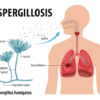Understanding Syphilis: An Ayurvedic Perspective
Understanding Syphilis: An Ayurvedic Perspective is a sexually transmitted infection caused by the bacterium Treponema pallidum. Characterized by its progression through various stages, syphilis can lead to serious health complications if left untreated. While modern medicine has effective treatments, some individuals seek alternative approaches, including Ayurveda. This blog will explore the nature of syphilis, its symptoms, and how Ayurvedic medicine may offer supportive care for those affected by this condition.
The Nature of Syphilis

Syphilis progresses in four stages:
- Primary Syphilis: This stage presents as a painless sore, or ulcer, known as a chancre, at the site of infection. It typically appears 10 to 90 days after exposure.
- Secondary Syphilis: Characterized by skin rashes, mucous membrane lesions, and flu-like symptoms, this stage may occur weeks to months after the primary infection.
- Latent Syphilis: In this stage, there are no visible symptoms, but the infection remains in the body. It can last for years.
- Tertiary Syphilis: This advanced stage can occur years after the initial infection and may affect various organs, leading to serious health complications like cardiovascular and neurological issues.
Conventional Treatment of Syphilis
The standard treatment for syphilis involves antibiotics, most commonly penicillin. Early detection and treatment are crucial to prevent the progression of the disease. However, some individuals may seek complementary therapies to enhance their recovery, improve overall health, and manage symptoms.
Introduction to Ayurveda
Ayurveda is an ancient Indian system of medicine that emphasizes a holistic approach to health, focusing on balance in the body, mind, and spirit. It recognizes that each individual is unique and tailors treatment to the specific needs of the person.
Key Concepts in Ayurveda
- Doshas: Ayurveda identifies three primary energies—Vata, Pitta, and Kapha—that govern physiological and psychological functions. An imbalance in these doshas can lead to illness.
- Dhatus: These are the seven bodily tissues that support overall health—rasa (plasma), rakta (blood), mamsa (muscle), meda (fat), asthi (bone), majja (marrow), and sukra (reproductive tissue).
- Srotas: These are the channels through which bodily fluids and energies flow, crucial for maintaining balance.
Ayurveda and Syphilis: A Supportive Approach
While Ayurveda cannot cure syphilis, it may offer supportive therapies that can enhance the overall health and wellbeing of an individual undergoing treatment. Here are some Ayurvedic principles and remedies that may be beneficial.
1. Balancing the Doshas
Understanding which dosha is imbalanced in a syphilis patient is essential for creating an effective treatment plan. For example:
- Pitta Imbalance: Individuals may exhibit signs of inflammation, skin rashes, or fever. Treatments would focus on cooling herbs and foods, such as coriander, mint, and cucumber.
- Vata Imbalance: Symptoms may include anxiety, irregular digestion, and dryness. Balancing Vata may involve grounding foods and calming herbs, like ashwagandha and sesame oil.
- Kapha Imbalance: This might manifest as lethargy and excess mucus. Light, stimulating foods and herbs like ginger and turmeric can help balance Kapha.
2. Herbal Remedies
Ayurvedic herbs can support the immune system and promote overall health. Some useful herbs include:
- Neem (Azadirachta indica): Known for its antibacterial properties, neem can help purify the blood and support skin health.
- Turmeric (Curcuma longa): With its anti-inflammatory and antimicrobial properties, turmeric may help reduce inflammation and support healing.
- Ginger (Zingiber officinale): Known for its digestive benefits, ginger can also boost immunity and reduce nausea.
- Triphala: A combination of three fruits—amalaki, bibhitaki, and haritaki—Triphala can aid digestion and detoxification, promoting overall health.
3. Detoxification (Shodhana)
Detoxification is a vital aspect of Ayurvedic treatment. It helps cleanse the body of toxins (ama) that can accumulate during illness. Techniques include:
- Panchakarma: This is a specialized detoxification therapy that involves five actions to cleanse the body. It should be conducted under the guidance of a qualified Ayurvedic practitioner.
- Svedana (Sweating Therapy): This therapy can help remove toxins through perspiration, promoting relaxation and better circulation.
4. Diet and Nutrition
Diet plays a critical role in Ayurveda. A balanced diet can enhance healing and support the immune system. Recommendations include:
- Fresh, Whole Foods: Emphasize fruits, vegetables, whole grains, and lean proteins to provide essential nutrients.
- Avoid Processed Foods: Limit consumption of refined sugars, saturated fats, and processed foods that can hinder recovery.
- Hydration: Adequate water intake is essential to support detoxification and overall health.
5. Lifestyle Modifications
Ayurveda places great emphasis on lifestyle practices that promote well-being:
- Yoga and Meditation: These practices can help manage stress, improve mental clarity, and support physical health.
- Adequate Sleep: Quality sleep is essential for recovery and overall health. Establishing a regular sleep schedule can enhance restorative processes.
- Mindfulness Practices: Engaging in mindfulness can help improve emotional well-being and resilience during treatment.
Safety and Consultation
While Ayurvedic treatments can offer supportive care, it’s crucial to consult with a qualified Ayurvedic practitioner before beginning any new treatment, especially for serious conditions like syphilis. Moreover, Ayurvedic remedies should complement, not replace, conventional medical treatment.
Conclusion
Syphilis is a serious health condition that requires prompt and effective treatment. While Ayurveda may not offer a cure, its holistic approach can provide supportive therapies that enhance overall well-being and aid recovery. By focusing on balancing doshas, incorporating beneficial herbs, and adopting a healthy lifestyle, individuals can improve their health and resilience during treatment. Always consult healthcare professionals before integrating any alternative therapies into your treatment plan to ensure a safe and coordinated approach to health.
By understanding syphilis and exploring Ayurvedic principles, we can appreciate the depth of traditional wisdom in supporting modern medical practices, paving the way for a more integrated approach to health.








Leave a reply